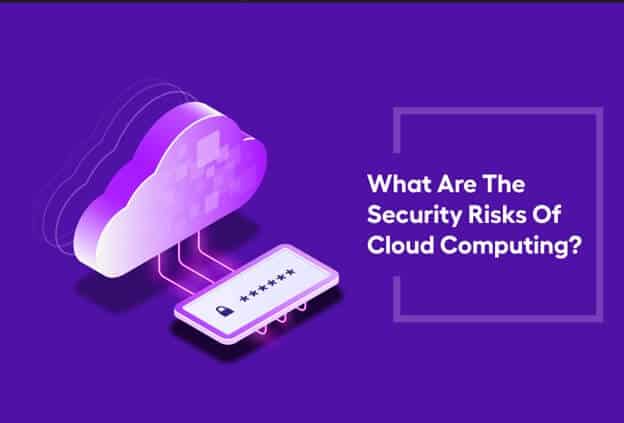The importance of the security benefits of cloud computing cannot be overstated. With the frequency and sophistication of cyber attacks, protecting sensitive data has become a top priority. Data breaches can result in significant financial losses, reputational damage, and legal consequences.
Cloud providers offer a range of security measures to protect sensitive data. They include advanced encryption protocols, regular security audits, and access controls. By storing data on remote servers, cloud computing reduces the risk of data loss or theft.
This article will explore questions such as “What are the security benefits of cloud computing?” and “Why should businesses consider adopting this technology?” We will examine the various security measures cloud providers offer and discuss how they can help organizations mitigate the risks associated with data breaches.
Table Of Content
- What Is Cloud Security?
- What Are The Security Benefits Of Cloud Computing?
- Important Cloud Security Tools & Components
- Is CDN One Of The Possible Cloud Security Solutions For Your Business?
- Main Risks Associated with Cloud Computing Security
- Bare Metal Servers For Cloud Security
- Switch To RedSwitches Now
- Key Takeaway
What Is Cloud Security?
Link to image: https://pixabay.com/images/search/cyber%20security/?manual_search=1
Cloud security protects cloud-based assets like websites, web applications, and data from theft, leakage, or loss. This protection is achieved through control-based safeguards and technology tools to secure cloud infrastructure, applications, and data from threats.
Cloud security providers offer various services, including data center security, access control, threat prevention, detection, mitigation, redundancy, legal compliance, and cybersecurity policy. Whether in a public or private cloud, businesses must balance high availability, DDoS protection, data security, and regulatory compliance in their cloud security provider.
In today’s increasing cyber threats, cloud security is essential for any business storing data or applications in the cloud. With proper protection in place, businesses can benefit from the scalability and flexibility of cloud computing while ensuring their assets remain secure.
What Are The Security Benefits Of Cloud Computing?
Visibility
Cloud security offers greater visibility into network traffic, giving businesses better control and management of their assets. With real-time monitoring and analytics, businesses can identify and promptly respond to threats.
Data Security
Protecting sensitive data is one of the most significant benefits of cloud computing security. Cloud providers offer advanced encryption protocols, access controls, and regular security audits, reducing the risk of data breaches and cyber-attacks.
Scalability
Cloud security allows businesses to scale their operations without sacrificing security. Cloud providers offer flexible, on-demand resources that can be easily scaled up or down, ensuring businesses can meet changing needs while maintaining security.
Cloud DDoS Protection
Distributed Denial of Service (DDoS) attacks can bring down websites and web applications, resulting in significant financial losses. Cloud security providers offer advanced DDoS protection, leveraging sophisticated techniques to detect and mitigate attacks before they can cause damage.
Regulatory Compliance
Businesses must comply with various regulations when it comes to data security. Cloud security providers offer solutions that meet regulatory requirements, ensuring businesses can maintain compliance while taking advantage of the different cloud computing security benefits.
Important Cloud Security Tools & Components:
- 2-Factor Authentication: An additional layer of security where cloud users can validate all logins and passwords from any geographic location using their devices.
- Encryption: A security technique that transforms data into unreadable formats before transferring and storing it in the cloud. This ensures that data is indecipherable to attackers without an encryption key.
- Data Loss Prevention: Safeguards to ensure that data remains secure, at rest, and in transit, protecting it from both internal and external threats and accidental exposure. DLP solutions provide visibility and control in SaaS and IaaS applications.
- Privileged Access Management: A system that verifies and validates users and their activity in cloud environments, with privileged access expanding its parameters, especially with the rise in remote workers and contractors.
- Cloud Security Monitoring & Vulnerability Management: Cloud security monitoring solutions provide continuous data monitoring, thus integrating seamlessly with your organization’s existing services to identify threats and vulnerabilities, increasing visibility across the infrastructure.
Is CDN One Of The Possible Cloud Security Solutions For Your Business?
Link to image: https://pixabay.com/images/search/network/?manual_search=1
CDN (Content Delivery Network) is a viable cloud security solution for businesses looking to enhance their security posture. CDNs offer a range of security features, including SSL/TLS encryption, DDoS protection, and Web Application Firewall (WAF), to protect against various cyber threats.
In addition, CDNs help reduce website latency and improve website performance by distributing content across a global network of servers. With the rise of cloud-based infrastructure and the growing demand for online content, CDNs have become essential to modern cloud security solutions.
Therefore, businesses should consider incorporating CDNs into their cloud security strategy to achieve robust protection and performance.
Main Risks Associated with Cloud Computing Security:
Cloud computing has become increasingly popular for businesses due to its convenience and flexibility, but it also presents significant security risks that need to be considered and addressed.
| Risks | Outcomes |
| Data Breaches | Theft of sensitive data, unauthorized access |
| Account hijacking and credential theft | Service Disruption |
| Regulatory Compliance Issues | Fines, legal action, damage to reputation |
| DDoS attacks | Service disruption, loss of revenue |
Bare Metal Servers For Cloud Security:
Bare metal servers, which provide direct access to the physical hardware, can be a valuable tool for cloud security. Unlike virtual servers, bare metal servers offer dedicated resources and greater control over the server environment. This can reduce the risk of security breaches and increase performance.
With bare metal servers, businesses can customize their security configurations and implement security measures that may not be possible on virtual servers. They can provide an extra layer of security for businesses that handle sensitive or confidential data.
Switch To RedSwitches Now:
Redswitches can provide you with a secure and reliable hosting environment for your business applications and websites, ensuring the privacy and security of your cloud infrastructure.
Our cloud hosting services have various features prioritizing cloud security, including instant setup, complete panels reboot and reinstall, and complimentary server management.
Our dedicated hosting service offers a 100% network uptime guarantee and enterprise-grade security, giving you peace of mind that your business data is protected. Switch to Redswitches now to ensure that your data is safe and secure.
Final Takeaway:
Cloud computing provides significant security benefits for businesses of all sizes. With cloud security tools and components such as 2-factor authentication, encryption, data loss prevention, privileged access management, and cloud security monitoring, businesses can protect their data from cyber threats and breaches.
Cloud computing has become a popular option for businesses because of its scalability and ease of management. By moving their infrastructure to the cloud, companies can reduce the risks associated with managing on-premises systems. Additionally, cloud-based DDoS protection and regulatory compliance make it an attractive option for businesses seeking secure, reliable, and compliant hosting solutions.
However, it is essential to recognize that while cloud computing has many benefits, it also comes with inherent security risks. Organizations must be aware of these risks and take proactive measures to mitigate them.
By adopting robust security measures, businesses can enjoy the security benefits of cloud computing, such as increased agility, flexibility, scalability, and security, thus allowing them to focus on their core organizational objectives and achieve growth and success.



